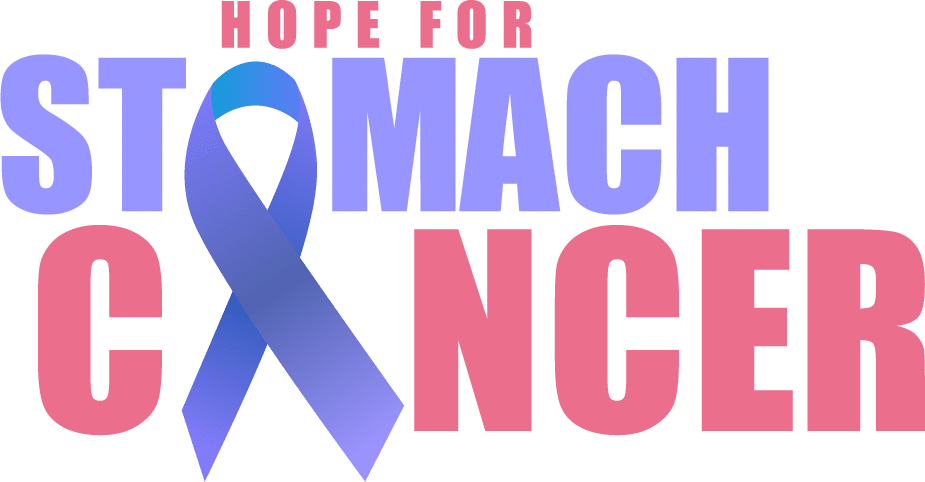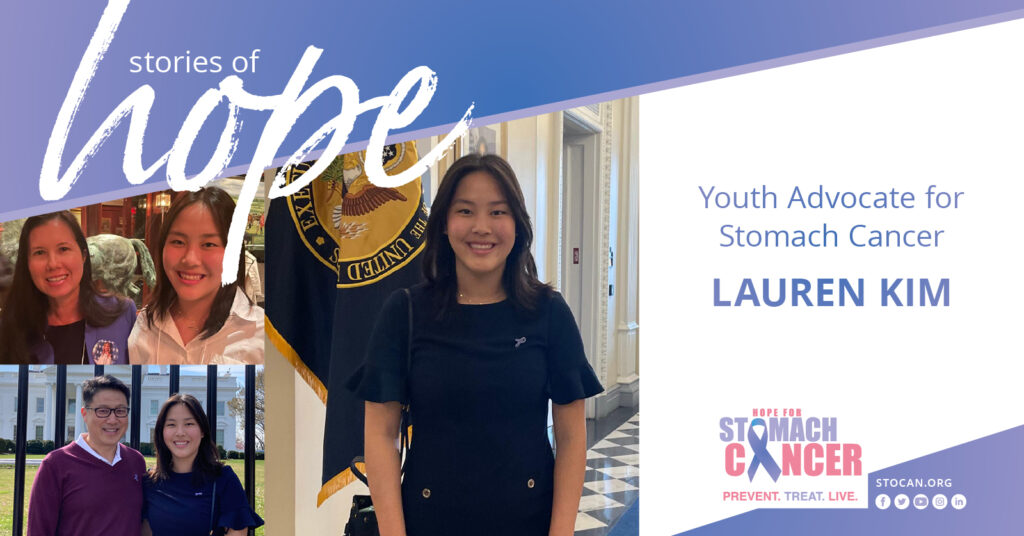16-year-old Lauren Kim is a passionate advocate for stomach cancer awareness. After watching her dad battle this disease and learning the story of 12-year-old Brayden Peerson – the youngest stomach cancer patient in the world – Lauren dedicated herself to shedding light on stomach cancer.
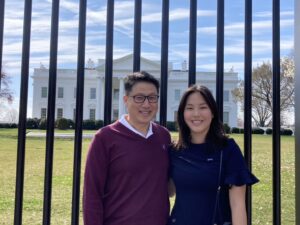 Q: Hi Lauren, thank you for being willing to share your story. Can you please give me some background about yourself and how you became interested in raising awareness for stomach cancer?
Q: Hi Lauren, thank you for being willing to share your story. Can you please give me some background about yourself and how you became interested in raising awareness for stomach cancer?
A: I am currently a sophomore in high school. I learned about stomach cancer after my dad was diagnosed about two years ago. Being so young at the time, I didn’t know what to expect. My family shared some information with me, but they left out some details to avoid scaring me. So, I turned to Google for some answers.
Truthfully, I hadn’t even known that this form of cancer existed until I delved into reading about it online. The resources I found were tough to comprehend and filled with medical jargon – finding articles and stories geared toward the average person was nearly impossible at the time.
Motivated to Do More for Stomach Cancer Patients
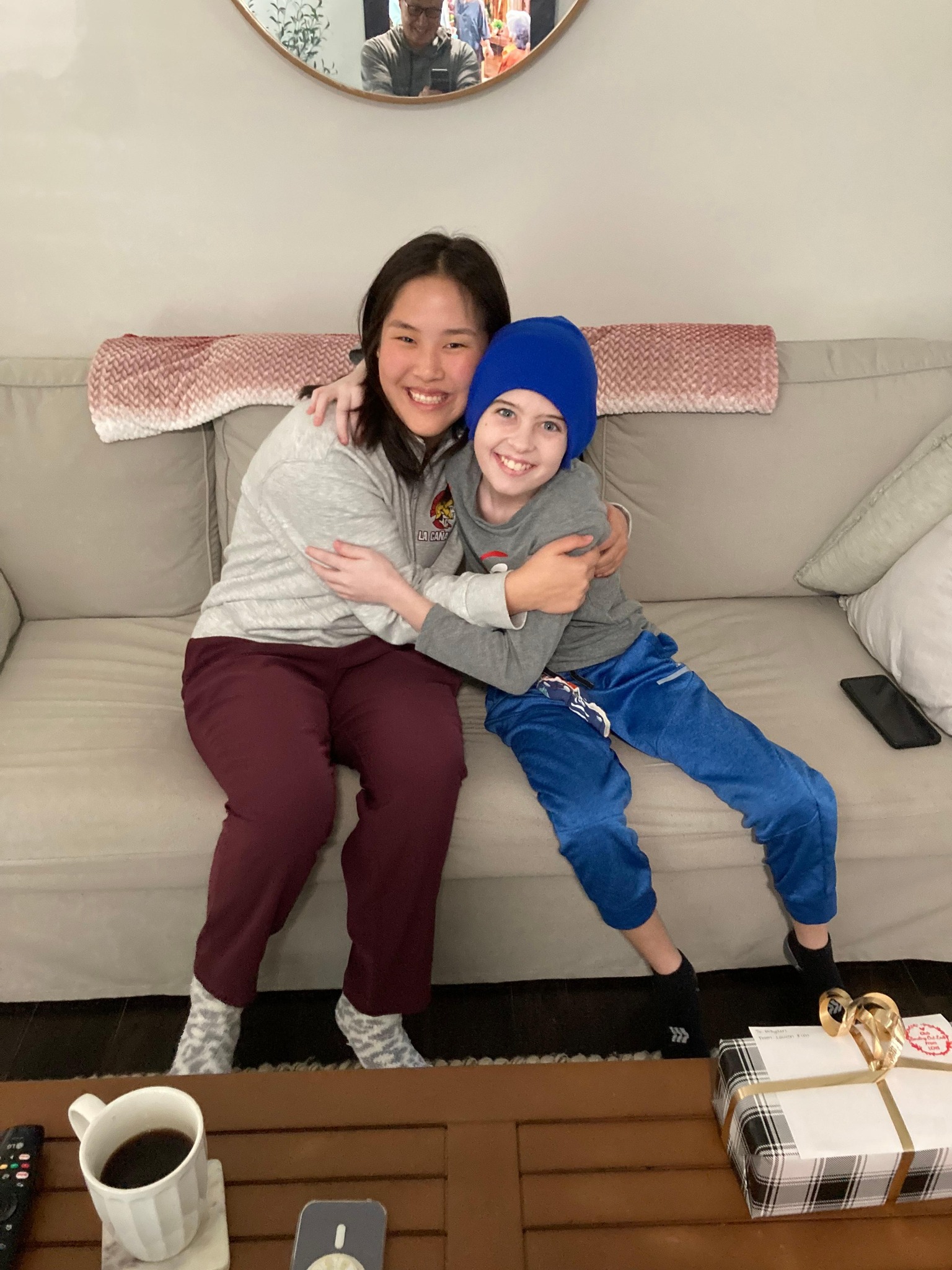 As my dad’s treatment progressed, I had an increasing interest in learning more about stomach cancer. Thankfully, my dad had a partial gastrectomy and successful treatments which left him cancer-free. However, I knew that many families were still struggling as a result of a stomach cancer diagnosis. I was especially touched by Brayden Peerson’s story of being diagnosed with this disease at age 11. To this day, he is the youngest stomach cancer patient in the world, and he is still undergoing treatments.
As my dad’s treatment progressed, I had an increasing interest in learning more about stomach cancer. Thankfully, my dad had a partial gastrectomy and successful treatments which left him cancer-free. However, I knew that many families were still struggling as a result of a stomach cancer diagnosis. I was especially touched by Brayden Peerson’s story of being diagnosed with this disease at age 11. To this day, he is the youngest stomach cancer patient in the world, and he is still undergoing treatments.
My father’s surgeon from City of Hope ended up connecting me with Aki and Hope for Stomach Cancer, which opened many doors for me to advocate for awareness. I even had the chance to travel to Washington DC.
A Trip to the Capitol
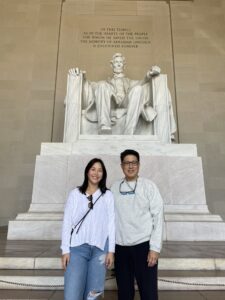 During this visit, I gave a presentation to urge congress members to increase funding to key health research organizations, including NIH (National Institute of Health), NCI (National Cancer Institute), and CDC (Centers for Disease Control). I also served as the only high school student to meet with President Biden’s Moonshot Cancer cabinet. Further, I connected with other advocates who each had their own experiences with cancer. It was an incredible opportunity to meet so many passionate people and to advocate for something that I believe in.
During this visit, I gave a presentation to urge congress members to increase funding to key health research organizations, including NIH (National Institute of Health), NCI (National Cancer Institute), and CDC (Centers for Disease Control). I also served as the only high school student to meet with President Biden’s Moonshot Cancer cabinet. Further, I connected with other advocates who each had their own experiences with cancer. It was an incredible opportunity to meet so many passionate people and to advocate for something that I believe in.
Q: Wow, that does sound like an amazing experience. What are some of the reasons you shared to help congress members understand why cancer research funding is so important?
A: The facts about cancer in general are pretty shocking. For instance, about 39.5 percent of men and women will be diagnosed with cancer at some point in their lives. That is a huge portion of the population. Further, roughly 17,000 children will be diagnosed with cancer each year. Gastric cancer is the third deadliest cancer, yet it receives only a sliver of the available research funding (two percent).
Right now, the CDC can only fund one out of every seven cancer research projects that it reviews. As you can imagine, since stomach cancer is already so obscure, it barely receives any attention. I want to keep advocating for research so that we make strides in fighting this disease. The diagnosis rates are going up, and in a melting-pot country where we enjoy cuisine from around the world, there are unique considerations for our population. Here is my essay titled: CONGRESSIONAL CANCER ADVOCACY
Q: What are you focusing on now and what are your advocacy goals for the future?
A: I’m continuing to stay in touch with Brayden as he undergoes his treatments. Additionally, I started a club at my school recently where we write cards of encouragement to people who are going through challenges such as cancer.
I also have a couple of other small projects in the works including an informational brochure that I’m writing with help from my dad’s surgeon. I am volunteering with Hope for Stomach Cancer and I’ll continue to prioritize my gastric cancer advocacy efforts in college and beyond.
My hope is that we’ll be able to get the funding, resources, and attention that we need to uncover new and more effective treatment methods for people of all ages.
